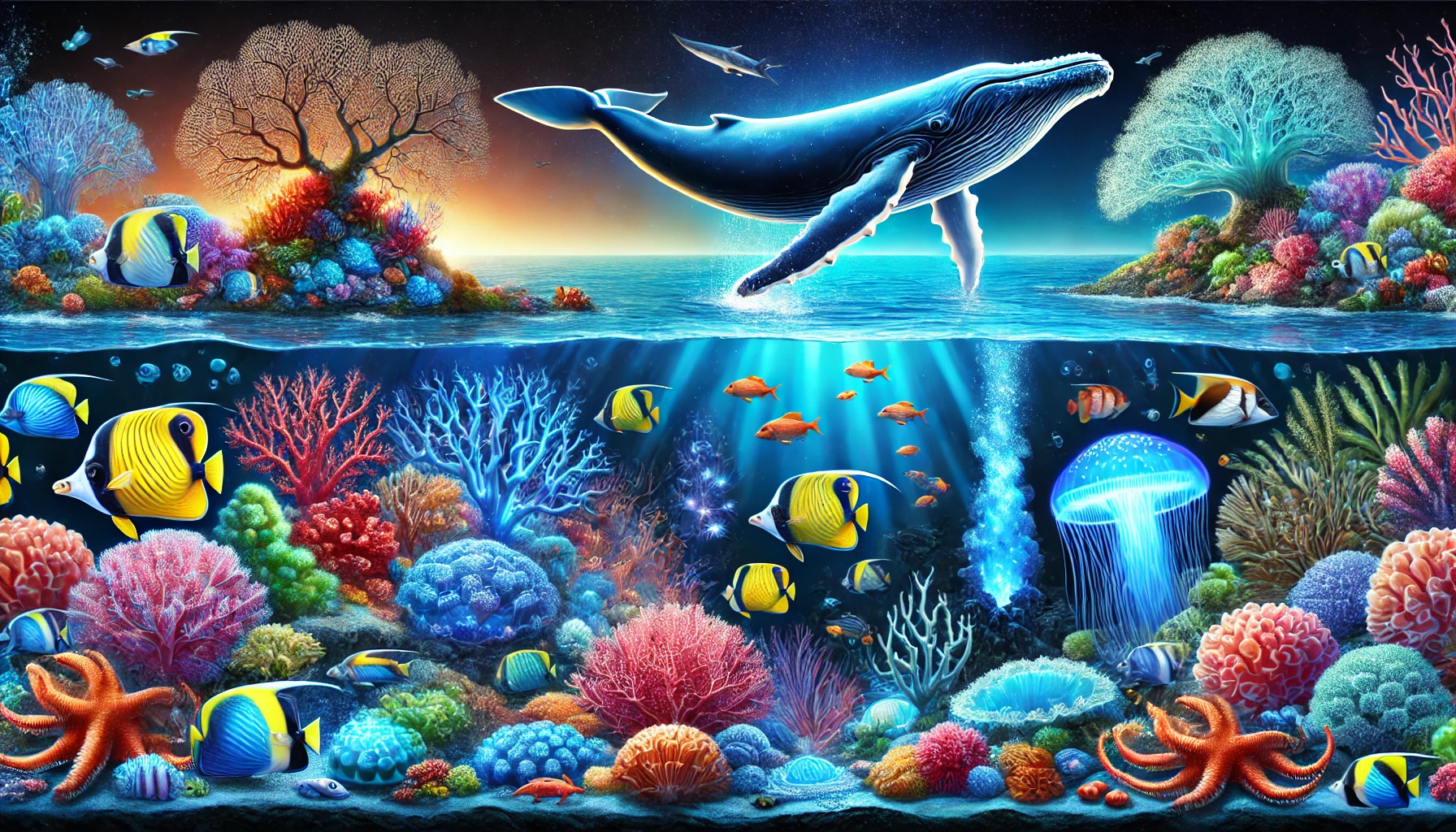The ocean, covering more than 70% of our planet’s surface, is Earth’s largest and most mysterious ecosystem. Despite technological advancements, we’ve only explored about 5% of this vast underwater world. Here’s a closer look at what makes our oceans both fascinating and essential:
1. The Deep Blue Mystery
Beneath the waves lies a world largely unknown. The ocean is divided into zones, from sunlit shallows filled with vibrant coral reefs to the abyssal plains, where strange, bioluminescent creatures thrive in total darkness. The deepest point, the Mariana Trench’s Challenger Deep, plunges nearly 11 kilometers (about 7 miles) below sea level—deeper than Mount Everest is tall.
2. Incredible Marine Biodiversity
Oceans are home to millions of species—from microscopic plankton to the enormous blue whale, the largest animal ever known. Coral reefs, like the Great Barrier Reef, are underwater rainforests supporting thousands of marine species. These habitats maintain ecological balance and support human life through food sources, climate regulation, and even medicine.
3. Ocean’s Role in Climate Control
The ocean acts as the Earth’s thermostat, absorbing over 90% of the heat trapped by greenhouse gases. It also captures carbon dioxide, mitigating climate change impacts. However, rising temperatures, ocean acidification, and pollution threaten this delicate balance, leading to coral bleaching, disrupted ecosystems, and rising sea levels.
4. Mysterious Marine Phenomena
Oceans host intriguing phenomena such as:
- Bioluminescence: Marine organisms producing their own light, creating glowing blue seas at night.
- Ocean Currents: Massive underwater rivers like the Gulf Stream regulate global climate and marine life migration.
- Hydrothermal Vents: Deep-sea volcanic ecosystems supporting life forms that thrive without sunlight, challenging our understanding of life’s possibilities.
5. Conservation: A Global Responsibility
Protecting the oceans isn’t just about saving marine life; it’s about securing our future. Overfishing, plastic pollution, oil spills, and habitat destruction threaten oceanic health. Global initiatives, marine reserves, sustainable fishing practices, and reducing plastic use are critical steps in safeguarding these essential ecosystems.
Conclusion
The ocean remains Earth’s greatest frontier—a source of mystery, life, and inspiration. Preserving and understanding its complexities isn’t just about exploration but recognizing its vital role in sustaining life on our planet.
Let’s commit to protecting our oceans—our future depends on it.

